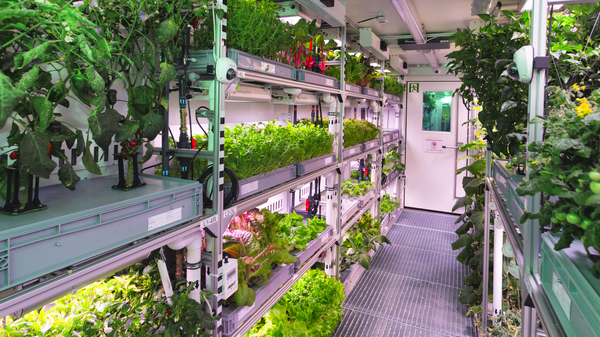Planetary Exploration
The field of space research encompasses a variety of specific areas, e.g. in-situ science instruments, air and ground mobility, resource processing and production or probes and landers. From this broad field, the Institute concentrates on two different areas:
One of the focal points in the field of planetary exploration is research and development (R&D) for exploration landers, probes and operational instruments for in-situ science, summarised below as "planetary probes".
This includes the conceptual design, development and qualification of the respective element, its system components and its support during operation.
The activities in this area are also closely linked to activities in the Landing Technologies cluster and the Landing & Mobility Test (LAMA).
Another focus is the research and development of bioregenerative life support systems (BLSS) and in particular the cultivation of higher plants using controlled environment agriculture (CEA) technologies.
The sustained presence of humans in space will require the development of new technologies to maintain environmental control, provide water, oxygen and food, and maintain the health and mental state of astronauts. While physical/chemical life support systems (LSS) will likely form the backbone as a fallback strategy, BLSS will eventually become the primary system to ensure sustainable life support for long-duration missions.
A key development focus of the EDEN research group is CEA, a combination of engineering, horticultural science and information technology to develop highly efficient plant growth systems. By using CEA technologies to carefully manage water and nutrient supply, control environmental conditions and provide selective light spectra, higher yields and shorter growth cycles can be achieved than ever before. Precise control of food quality is also possible with CEA.




